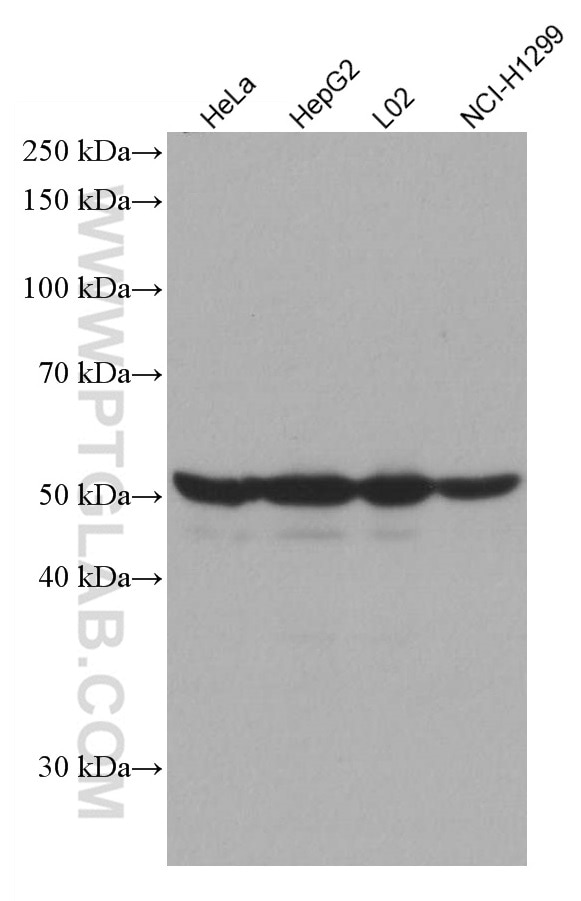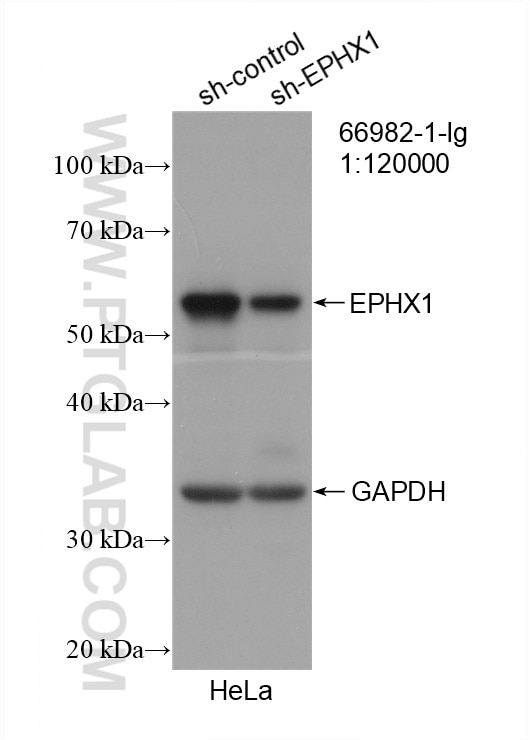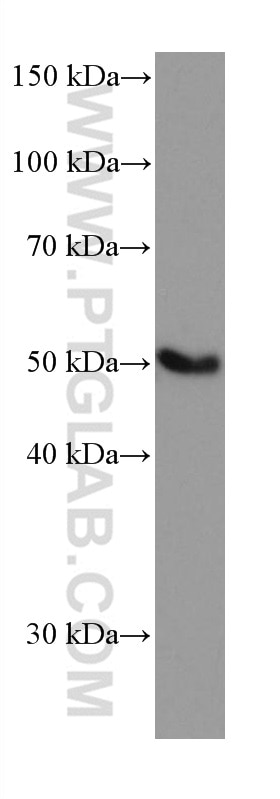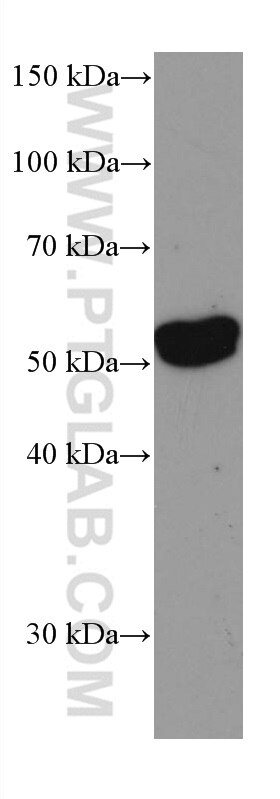Tested Applications
| Positive WB detected in | HeLa cells, A549 cells, 4T1 cells, HepG2 cells, L02 cells, NCI-H1299 cells |
Recommended dilution
| Application | Dilution |
|---|---|
| Western Blot (WB) | WB : 1:5000-1:50000 |
| It is recommended that this reagent should be titrated in each testing system to obtain optimal results. | |
| Sample-dependent, Check data in validation data gallery. | |
Product Information
66982-1-Ig targets EPHX1 in WB, ELISA applications and shows reactivity with Human, Mouse samples.
| Tested Reactivity | Human, Mouse |
| Host / Isotype | Mouse / IgG2b |
| Class | Monoclonal |
| Type | Antibody |
| Immunogen | EPHX1 fusion protein Ag25820 Predict reactive species |
| Full Name | epoxide hydrolase 1, microsomal (xenobiotic) |
| Calculated Molecular Weight | 53 kDa |
| Observed Molecular Weight | 53 kDa |
| GenBank Accession Number | BC003567 |
| Gene Symbol | EPHX1 |
| Gene ID (NCBI) | 2052 |
| RRID | AB_3085034 |
| Conjugate | Unconjugated |
| Form | Liquid |
| Purification Method | Protein A purification |
| UNIPROT ID | P07099 |
| Storage Buffer | PBS with 0.1% sodium azide and 50% glycerol pH 7.3. |
| Storage Conditions | Store at -20°C. Stable for one year after shipment. Aliquoting is unnecessary for -20oC storage. 20ul sizes contain 0.1% BSA. |
Background Information
EPHX1, also known as EPHX and EPOX, belongs to the peptidase S33 family. EPHX1 is an evolutionarily highly conserved biotransformation enzyme expressed in nearly all tissues and localized mainly in the microsomal fraction of the endoplasmic reticulum of eukaryotic cells. EPHX1 plays a role in the metabolism of endogenous lipids such as epoxide-containing fatty acids. The calculated molecular weight of EPHX1 is 53 kDa (PMID: 26216302).
Protocols
| Product Specific Protocols | |
|---|---|
| WB protocol for EPHX1 antibody 66982-1-Ig | Download protocol |
| Standard Protocols | |
|---|---|
| Click here to view our Standard Protocols |









